Share
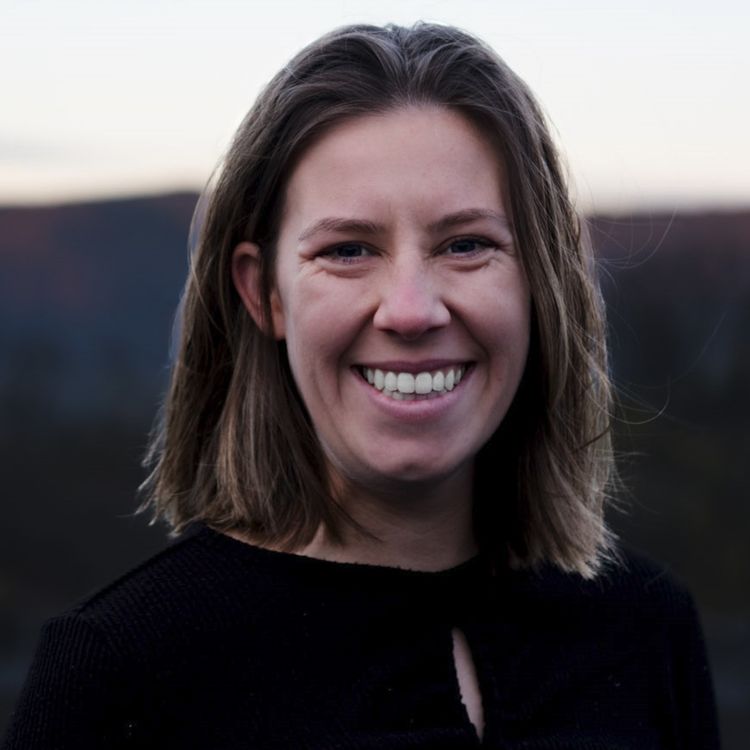
Human Restoration Project
Roma Education: Emma Sisson's Mission From Tennessee to Transylvania
The story my guest will tell today is of her experience growing up and teaching in Memphis, Tennessee before finding a purpose-driven career change in - I am not joking - the heart of Transylvania. Emma Sisson is the School Director of The Mission School in Sighisoara, Romania.
The work of The Mission, Romania is deeply rooted in the local community in Sighisoara and, as you’ll hear Emma describe it, homebase is an 80,000 sq ft abandoned Soviet textile mill where staff live, work, house a K-3 school, and provide family wrap-around services to Romani children and families.
Romani, or Roma, are a historically enslaved and oppressed underclass in Europe, in Romania in particular, where they are often slandered as a lazy, thieving, “gypsy” underclass. In 2022 the European Union reported that 80% of Roma live in poverty, compared to the 17% EU average. 1 in 5 live in households with no running water. 1 in 3 have no indoor toilet. And fewer than half of Roma children attend early childhood education. The scathing report prompted the EU director of Fundamental Human Rights to ask, “Why do Roma across Europe still face shocking levels of deprivation, marginalization, and discrimination?”
Overcoming structural discrimination and prejudice against Roma people is a key part of The Mission’s mission. The Mission School also works to preserve Roma values and language in the context of education, expressed as a preference for family apprenticeships, experiential hands-on learning, and a rich oral tradition, that have historically put them at odds with the priorities of institutional school-based literacies.
On the other side of the Atlantic, The Mission international is currently recovering from a devastating fire that destroyed their entire campus headquarters in Tijuana, Mexico that served over 500 at-risk youth, so if you’d like to learn more and donate to help support Emma’s work in Romania and rebuild the Tijuana campus, you can do that at themissioninc - that’s the mission eye-enn-see - dot org
https://www.themissioninc.org/
You can reach Emma @ emma.barbara.sisson@gmail.com
More episodes
View all episodes

163. Inquiry, Play, and Early Childhood Education w/ Heidi Echternacht
01:00:00||Ep. 163If you go back through the HRP podcast archives, and I encourage you to do just that, you’ll see that we’ve covered just about every topic imaginable in the world of education, with some that keep returning again and again. One area you’ll probably notice a regrettable gap is in early childhood education, PreK-early elementary. One reason is that it’s just out of the experience of the two high school social studies teachers who started the podcast, and another is that foundationally, at least for the classrooms I’ve visited since, PreK-early elementary tends to get a lot more right about developmentally appropriate instruction and schooling than the middle and high school grades that follow. That’s a large part of why I reached out to my guest today to help unpack the ideas that make early childhood education such a powerful and important part of a child’s life.Heidi Echternacht is co-founder of Kinderchat, a weekly professional conversation, resource library, and online network for early childhood advocates and educators. Created and led by teachers, Kinderchat has hosted global discussions between and among professional educators and in-service teachers for over ten years. Author of The Kinderchat Guide to the Classroom, Heidi has been an educator of children for over 20 years and currently teaches second grade in Princeton, New Jersey.Kinderchat SubstackKinderchat.orgConnect with Heidi on BlueskyKinderchat GuidesIn Dialogue with Reggio EmiliaPeter Gray - Free to LearnVisible Learners - Mara Krechevsky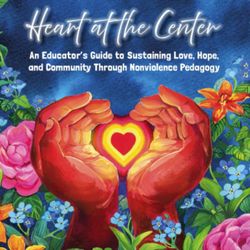
162. Sustaining Love, Hope, and Community Through Nonviolence Pedagogy w/ Mike Tinoco
46:27||Ep. 162Today we're joined by Mike Tinoco. Mike is a full time public school teacher from California, and author of Heart at the Center: An Educator's Guide to Sustaining Love, Hope, and Community Through Nonviolence Pedagogy. Gholdy Muhammad called the book "an urgent call for truth, love, and justice for every educator and community member who deeply dreams of and seeks peace.” Further, Mike is a certified Kingian Nonviolence and Center for Nonviolent Communication (CNVC) trainer who provides workshops around the country. miketinoco.comHeart at the Center: An Educator's Guide to Sustaining Love, Hope, and Community Through Nonviolence Pedagogy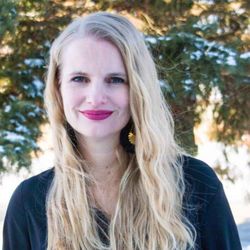
161. A Danish Perspective on American Education w/ Pernille Ripp
53:01||Ep. 161I’m thrilled to be joined today by Pernille Ripp — a passionate educator, author, and literacy advocate. She is the author of Passionate Readers: The Art of Reaching and Engaging Every Child, Passionate Learners: How to Engage and Empower Your Students, and Reimagining Literacy Through Global Collaboration. She’s also the founder of the Global Read Aloud, a program that has connected millions of students and teachers around the world through the shared joy of reading.And for all of our benefit, Pernille is also a prolific sharer. After teaching in Wisconsin for over a decade, In her BlueSky re-introduction she noted she was “back living in Denmark because she needed to breathe a bit easier.” And she frequently posts about her experience in the Danish education system, “Fun fact about teaching at my Danish school,” she writes, “when we are sick, we’re not required to write sub plans because we’re sick.” And by most measures, Danes are among the happiest in the world, despite having among the highest tax rates. Healthcare and PreK-College education is free. Hygge conjures cozy seasonal vibes. Denmark has some of the highest public education participation and teacher pay and some of the lowest student:teacher ratios and class sizes among their OECD peers, including the United States. On a more grim note of comparison, the Wikipedia page for “school shootings in Denmark” contains a single entry from 1994, the only school shooting in Danish history. However, as a PDF, the list of school shootings in the United States since 2000 is 169 pages long with footnotes.Regular listeners of this show will know just how immediately all of this grabbed my attention. In the past we’ve had guests talk about their experiences with everything from the education system in Trinidad & Tobago to the national Chinese college entrance exam, so I am thrilled at the opportunity to dig into both American and Danish society and education systems with someone who has knowledge and experience in both.Pernille Ripp Bluesky
160. The Privateers: How Billionaires Creates a Culture War and Sold School Vouchers w/ Josh Cowen
40:56||Ep. 160There are any number of narratives that emerged from the 2024 election and that will be hotly debated over the next four years. However, one of those is not up for debate: that vouchers and school choice lost everywhere they were on the ballot in 2024. In Colorado, voters rejected a constitutional amendment that would’ve added “a right to school choice.” And in red-state Kentucky and Nebraska, voucher programs failed by nearly the same proportion that Donald Trump won. On this show we've focused a lot on culture war issues as they directly impact what and how classroom teachers can teach, and I suspect the culture war will come up in this conversation. But we've never actually dug into the specific issue of voucher programs, which also impact educators, parents, schools, and kids in over a dozen states, with even more to come in an explicit push for a national universal voucher program as a long-term federal policy goal. My guest today is Josh Cowen, a professor of education policy at Michigan State University. He’s written extensively about education politics, school choice, and culture wars in the United States, and you should definitely give him a follow on BlueSky @joshcowenmsu as he is very persistent in addressing the topic of his latest book, titled The Privateers: How BIllionaires Created A Culture War and Sold School Vouchers. I wanted to have Josh Cowen on to better understand, as we head into a new year and the next administration, how, like unsinkable rubber ducks, vouchers continue to fail to deliver on their promises and continue to be rejected by voters, and yet, we find ourselves on the verge of a nationwide voucher and school choice program. The Privateers @ Harvard Education PressJosh Cowen @ BlueSkyThe Effect of Taxpayer-Funded Education Savings Accounts on Private School Tuition: Evidence from Iowa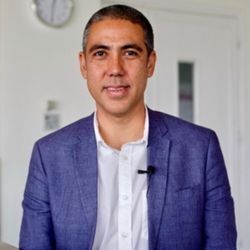
159. The Landscape Model of Learning w/ Dr. Kapono Ciotti
44:42||Ep. 159Quick update: Between recording and release, our guest, Dr Kapono Ciotti, is no longer with What School Could Be and that their PD options have changed. So check out their website @ whatschoolcouldbe.org for details. Enjoy the episode!Today we are joined by Dr. Kapono Ciotti. Dr. Ciotti is the Executive Director of What School Could Be, an organization offering a whole host of things: free resources, a flourishing community, coaching services, graduate coursework, and more; plus WSCB is one of Human Restoration Project’s partners. Prior to this work, Dr. Ciotti grew up in Honolulu, Hawai’i in a progressive, constructivist school and taught in the same area, then in Senegal, and then became a school leader in the United States and internationally. He’s worked in over one hundred schools across four continents, including as national faculty for the National Association of Independent Schools in diversity, equity, and justice.Dr. Kapono Ciotti @ Solution TreeDr. Kapono Ciotti @ PrincipledLearningWhat School Could Be
158. A Measure of Intelligence: One Mother's Reckoning with the IQ Test w/ Dr. Pepper Stetler
38:07||Ep. 158Today we are joined by Dr. Pepper Stetler. Pepper’s recently released book, A Measure of Intelligence: One Mother’s Reckoning with the IQ Test documents her journey alongside her daughter, Louisa, who was diagnosed with Down syndrome. It dives into the history and ongoing problematic issues with measuring intelligence, specifically how school and society uphold and reinforce misused and misappropriated labels. Pepper’s work on disability advocacy has appeared in The New York Times, The Atlantic, Slate, and The Washington Post, and she’s also an Art History professor at Miami University.Book: A Measure of Intelligence: One Mother's Reckoning with the IQ Test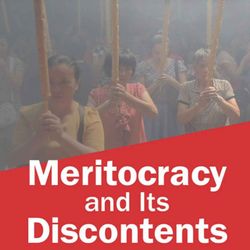
157. Meritocracy, Anxiety, & the Chinese College Entrance Exam w/ Zachary Howlett
52:59||Ep. 157I was not familiar at all with China’s national college exam, the gaokao, until reading about it in Susan Blum’s book, Schoolishness, and talking with her about it on a podcast episode we released in August – episode 152, you should check it out – and I’m incredibly grateful to Susan for making the connection with my guest today. Zachary Howlett is associate professor of Anthropology at the National University of Singapore, joining me from Singapore, and author of the book, Meritocracy and Its Discontents: Anxiety and the National College Exam in China. I thought at first ah, sure, every country has its school gatekeepers and methods of rationing secondary & post-secondary education – the SAT & ACT in the US, or the GCSE’s in the UK, for example – so how is this any different? But what I was not prepared for in Zachary’s work was the sheer magnitude of the gaokao as a deeply Chinese cultural, economic, political, and even a magical and religious phenomenon that touches every aspect of life, and for which there really is no American equivalent. The blurb on the back of the book from Karrie Koesel captures it so well, “Zachary M Howlett opens the black box of the gaokao to reveal that it is not only a fateful rite of passage, but also a complex social phenomenon laid in with ritual, magic, dark horses, examination champions, latent, potential, luck, character building, social inequity, and the possibility of changing one's fate.”Meritocracy and its Discontents book link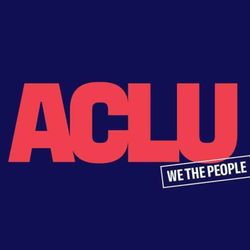
2024 Title IX Update w/ the ACLU
27:59|It’s not every day that you get an email from ACLU. If you aren’t aware, since being co-founded in part by Hellen Keller in New York City in 1920, the American Civil Liberties Union has been involved in dozens of major cases defending the fundamental civil rights of individuals and causes both popular and very much not so. In 1925, the ACLU represented high school science teacher, John Scopes, in what became known as the Scopes Monkey Trial. Nearly 30 years later they played a significant role in the Brown v Board decision overturning “separate but equal” education for Black and white students. So when they reached out wanting to do a podcast episode with us about the state of Title IX in 2024, I had to say yes. In the past we’ve done episodes about how classroom teachers can best support LGBTQ students in potentially hostile policy environments, but we are well overdue for a national look at the current rights under Title IX for LGBTQIA+ students, pregnant and parenting students, and for all students facing sex-based harassment and assault and the obligations schools have to protect them.Jennesa Calvo-Friedman is currently a staff attorney at the ACLU. Previously, she was the Marvin M. Karpatkin Fellow with the ACLU’s Racial Justice Program. Before joining the ACLU, Calvo-Friedman clerked for the Honorable Gerard E. Lynch of the U.S. Court of Appeals for the Second Circuit and the Honorable Ronnie Abrams of the U.S. District Court for the Southern District of New York. She was the Relman Civil Rights Fellow at the civil rights law firm Relman, Dane & Colfax. Calvo-Friedman received her B.A. from Swarthmore College, and her J.D. from Georgetown University Law Center, where she graduated first in class, was a Public Interest Law Scholar and Executive Editor of the Georgetown Journal on Poverty Law & Policy.US Dept of Education Title IX: https://www.ed.gov/titleixACLU Title IX Fact Sheet: https://www.aclu.org/documents/title-ix-fact-sheetGeneral Resources:https://nwlc.org/respect-students/https://www.equalrights.org/news/new-title-ix-rule-goes-into-effect-protecting-lgbtqi-other-students-but-not-in-all-states/Pregnant and Parenting Students:https://thepregnantscholar.org/titleix-updates-toolkit/https://www.abetterbalance.org/our-issues/students-rights-emerging-workforce/Sexual Assault, Sexual Harassment, and Gender Based Violence:https://www.publicjustice.net/what-we-do/gender-sexual-violence/https://www.advocatesforyouth.org/campaigns/know-your-ix/LGBTQIA+:https://www.glsen.org/title-ixhttps://www.aclu.org/know-your-rights/lgbtq-rights#are-lgbtq-students-protected-from-discrimination-in-schoolshttps://legacy.lambdalegal.org/know-your-rights/article/youth-how-the-law-protects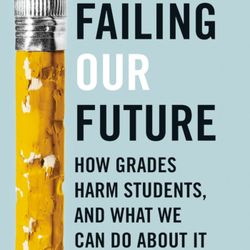
156. How Grades Harm Students & What We Can Do About It w/ Joshua Eyler
44:10||Ep. 156If education had a Hippocratic Oath - First, do no harm - grades and grading would be among the first practices on the chopping block. And in the conversation about grades and grading in school, there are any number of books and blogs educators can look to for figuring out how to de-grade, un-grade, Hack Assessment, and so on, to mitigate the harm grading causes. After all, as these books and blogs reveal, it’s a system educators have a surprising amount of control over. But what about parents who see it weighing on their own kids and young people who feel the weight of the grading system themselves? How do we communicate the real consequences of grades and grading, especially on youth mental health, and the need for change to those on the outside looking in? And what can parents do to help kids who are navigating outmoded grading systems?“Supporting a child who is trying to navigate an educational system that privileges grades and achievement begins, simply, with compassion and love,” my guest today writes, “When children believe that their worth as human beings has nothing to do with the grades they receive, and when they know that the love of their family comes without conditions, they are better able to cope with the negative messages that grades can so often send.”Just one of many powerful lines from my guest, Joshua Eyler, who runs the Center for Excellence in Teaching and Learning and is a clinical assistant professor of teacher education at the University of Mississippi. His latest book is absolutely full of insight for people trying to change the system, we’re talking about Failing Our Future: How Grades Harm Students, and What We Can Do About It, currently available from Johns Hopkins University Press.Failing Our Future